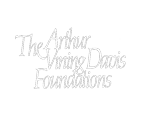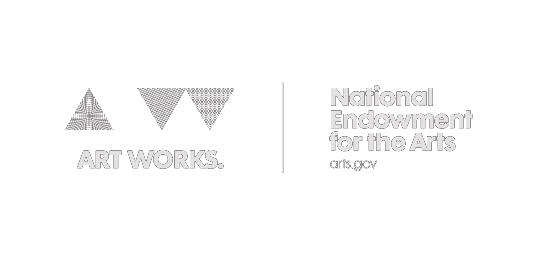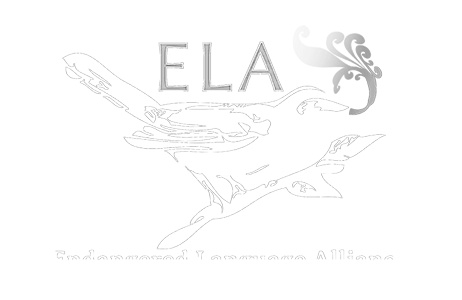The movements featured in Language Matters have been driven by groups like the Welsh Language Society and ‘Aha Pūnana Leo. More than ever, community organizations, non-profits, tribal councils, language committees, and more informal groups are at the forefront of documenting, preserving, and revitalizing endangered languages. These established organizations, only a partial list, are going beyond individual languages to address the broader crisis:
Advocates for Indigenous California Language Survival (California, USA)
Native-run non-profit whose mission is “to foster the restoration and revival of indigenous California languages.” AICLS coordinates the well-known Master-Apprentice Language Learning Program, which pairs a fluent speaker (Master) with a younger member of the tribe (Apprentice) for an extended, immersive period. Over 70 teams have graduated, 30 are now in training – and the model is being adopted in several other communities around the world.
Endangered Language Alliance (New York City, USA)
Non-profit focused on documenting and supporting the immense linguistic diversity of urban areas, especially New York City, where up to 800 languages may be spoken. ELA collaborates with indigenous, immigrant, and refugee communities on a range of documentation, revitalization, and outreach programs, including language classes, documentation projects on several dozen languages, and the public series “Unheard Of,” which showcases endangered global literature.
Collaborative online effort allowing the public “to record, access, and share samples of and research on endangered languages” – a crowdsourced digital database where linguists, activists, and the public exchange advice, feedback, and best practices. Anyone can upload their own materials, and thousands of recordings and documents are now easily searchable and accessible. The project is run by the Alliance for Linguistic Diversity, a diverse coalition of non-profits, academic institutions, and community groups, with technical assistance and initial funding from Google.
Advocacy organization working “to ensure that the wishes of Aboriginal and Torres Strait Islander community members are voiced in key decision-making processes that impact on the current and future management of their languages.” First Languages holds discussions with communities, government officials, and other groups, with a focus on sharing resources, experience, and expertise.
Indigenous Language Institute (New Mexico, USA)
Educational institute primarily assisting indigenous peoples of North America with tribal language programs through research, teaching, and information sharing. The institute has helped tribes design and produce textbooks, teaching aids, films, brochures, posters, toys, and signage, among other tools.
Language Landscape (UK)
Non-profit best known for crowdsourced, user-friendly language maps, which allow anyone to upload recordings and embed them in searchable maps.
Living Tongues Institute for Endangered Languages (Oregon, USA)
Linguist-led non-profit involved in the full range of endangered language documentation, maintenance, and revitalization, leverage linguistic expertise to assist with community-driven, multi-media projects. Living Tongues partnered with National Geographic on the Enduring Voices project, a documentation effort focused on language hotspots, and has producing a series of online “Talking Dictionaries.”
Linguapax (Barcelona, Spain)
Non-profit “dedicated to the appreciation and protection of linguistic diversity worldwide,” inspired by the Catalan language movement and supported by Catalan institutions. Linguapax operates as an international network of advocates and researchers focused on sociolinguistic research, political activism (including legislation), and multilingual education.
Museums
Museums focused on linguistic diversity include The World Language Centre in Reykjavik, Iceland; the National Language Museum in College Park, Maryland, USA. Many others are devoted to individual languages or the languages of particular regions.
Resource Network for Linguistic Diversity (Australia)
Network of linguists and language activists, with a particular strength in Australian Aboriginal languages and a goal of increasing community participation in language documentation and revitalization. Focused on training, resource sharing, networking, and advocacy, RNLD maintains an active electronic infrastructure including online resources, discussions, and social media.
Rosetta Project (California, USA)
Project “working to build a publicly accessible digital library of human languages,” which currently contains 70,000 pages of language documentation on over 2,500 languages – in many cases “parallel texts” from different languages, like the Book of Genesis and the Universal Declaration of Human Rights. The Rosetta Project has held a public, one-day Record-a-thon – 100 recordings made in 35 different languages – and has been developing a microetched disk, designed to last for millennia and including texts from over 1,500 languages.
Society for Endangered Languages (Germany)
Non-profit organization founded by German linguists “to further the use, preservation, and documentation of endangered languages and dialects.” The Society has made small grants to support projects on individual languages.
Sorosoro (France)
Program working to raise awareness about cultural and linguistic diversity, through conservation (building a database of images, sounds, and texts), video footage (on its YouTube channel), and other initiatives.
Summer Institute of Linguistics (USA)
Large Christian non-profit working with communities around the globe to “build capacity for sustainable language development”—through research, translation, training, and materials development. With a staff of over 4,400, SIL has worked on over 2,167 languages and is known for Ethnologue (its database of the world’s languages) as well as Bible translations and specialized software tools for language documentation.
Terralingua (Canada)
International non-profit working “to sustain the biocultural diversity of life — the world’s precious heritage of biological, cultural, and linguistic diversity.” Terralingua explicitly links the disappearance of languages and cultures to the ongoing extinction of plant and animal species. Terralingua sponsors research, education, public policy, and community initiatives that connect the two crises, like Voices of the Earth, an oral literature documentation project undertaken with the Saanich and Chilcotin (Tsilhqot’in) First Nations peoples of British Columbia.






